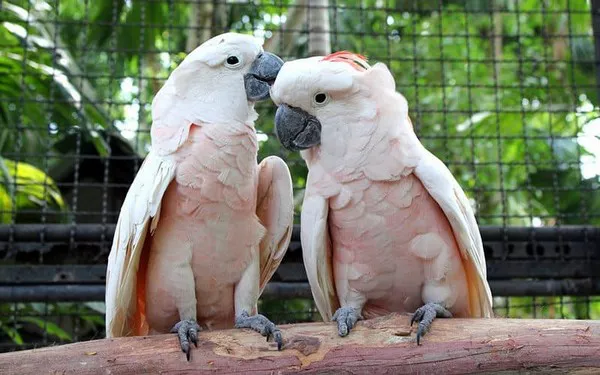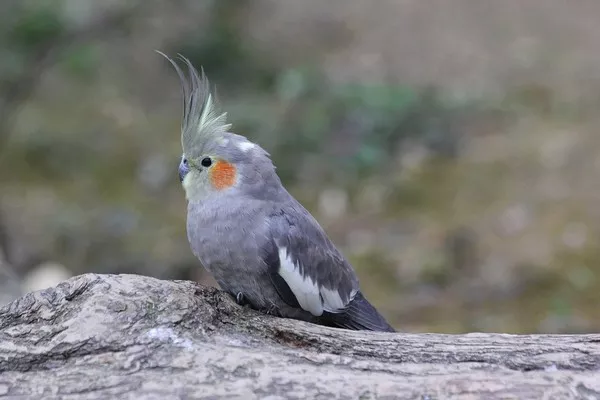Guinea pigs, also known as cavies, are popular pets that provide companionship, affection, and entertainment for many households. With their gentle nature and endearing features, guinea pigs have earned a place in the hearts of pet lovers worldwide. As a responsible pet owner, understanding your guinea pig‘s behavior is key to providing them with the best care. One common question pet owners often have is whether guinea pigs are noisy at night. In this article, we will explore the nocturnal behavior of guinea pigs, how they communicate, and tips for managing nighttime noise.
1. Understanding Guinea Pig Behavior
Guinea pigs are social and active animals. Unlike some other pets that are more independent, guinea pigs thrive in social environments, where they are able to interact with their fellow cavies or their human owners. These rodents are crepuscular, meaning they are most active during the twilight hours—early morning and evening. However, their activity level can vary depending on their age, environment, and personality.
Guinea pigs have an incredibly strong sense of hearing, and they use a variety of vocalizations to communicate with one another and their human companions. These sounds can range from soft squeaks to loud whistles, and each type of vocalization can signify different emotions or needs. While guinea pigs are generally known for being quiet during the day, they may become more vocal at night. This has raised concerns for pet owners about how to manage potential nighttime noise.
2. Do Guinea Pigs Make Noise at Night?
The simple answer is yes—guinea pigs can make noise at night. However, the noise is not usually as disruptive as it may seem. Guinea pigs are crepuscular creatures, meaning they are most active during dawn and dusk, but this can extend to nighttime as well. They may engage in activities like running around their cage, exploring, or interacting with their cage mates, and these activities can produce sounds. Some common noises guinea pigs make at night include:
Squeaks and Whistles: These are high-pitched sounds that guinea pigs use to express excitement or curiosity. For example, a guinea pig might squeak when it hears food being prepared or when it is in a playful mood. At night, when guinea pigs are more active, they may use these sounds to communicate with their cage mates or humans.
Wheeking: Wheeking is a very specific, high-pitched sound that guinea pigs make when they are excited, especially when they anticipate being fed. This is one of the most common noises guinea pigs make, and it can occur at any time of the day or night.
Purring: Guinea pigs purr when they feel content and safe, much like a cat. Purring can occur at night, particularly when they are relaxed or being petted. This noise is typically low and soothing, and it’s a sign that your guinea pig is feeling comfortable in its environment.
Chattering or Teeth Grinding: This noise is a sign of discomfort or stress. When a guinea pig chatters or grinds its teeth, it could indicate that they are feeling threatened or anxious. While this is more likely to happen during the daytime, it is possible for guinea pigs to make this noise at night if something in their environment is causing them distress.
Rustling or Scratching: Guinea pigs may move around their bedding or chew on cage bars, especially if they are exploring or trying to find a comfortable sleeping spot. These sounds can occur at any time of day but may seem more pronounced at night when the house is quiet.
Despite these potential noises, guinea pigs are not typically as noisy as other pets such as parrots or dogs. The volume of their sounds is generally not loud enough to disrupt sleep in most households, but this can depend on the size and setup of the cage, as well as the number of guinea pigs living together.
3. Why Do Guinea Pigs Make Noise at Night?
There are several reasons why guinea pigs may make noise at night. Some of the main factors contributing to their nighttime vocalizations include:
Social Communication
Guinea pigs are highly social animals and often make noise to communicate with their cage mates. At night, when they are most active, guinea pigs may communicate with each other by making various sounds, such as squeaks, whistles, and purrs. These vocalizations are part of their natural behavior to establish and maintain social bonds.
For example, if one guinea pig is moving around or exploring, other guinea pigs may respond by wheeking or squeaking to join in on the activity or to express curiosity. Similarly, guinea pigs may use these sounds to locate each other in the dark or to signal that they are hungry, excited, or in need of attention.
Anticipation or Excitement
Guinea pigs are creatures of habit, and they tend to follow regular routines, including when they are fed or let out of their cage. If your guinea pigs are accustomed to eating or interacting with you at certain times during the day or evening, they may begin to make noise when they anticipate that it’s time for a meal or playtime.
Wheeking is one of the most common signs of excitement in guinea pigs. If they are hungry or expect food, they may vocalize to let you know. These vocalizations are often more frequent in the evening or night, especially if they are used to receiving food or treats during those hours.
Seeking Attention
Guinea pigs are affectionate animals, and they often seek the attention of their owners or cage mates. If they feel lonely or want companionship, they may make noise at night to get attention. This is especially true if you have a single guinea pig. In the wild, guinea pigs live in groups, so they are accustomed to being around others. If your guinea pig is alone, it may vocalize at night to express a desire for social interaction.
Hunger or Thirst
While guinea pigs are generally not nocturnal in the strictest sense, they may wake up at night if they are hungry or thirsty. If your guinea pig’s cage has an insufficient supply of food or water, it may begin making noises to signal its discomfort or need. Similarly, if their food supply is running low, they may start squeaking or wheeking to get your attention.
Environmental Factors
Sometimes, guinea pigs may make noise at night due to changes in their environment or surrounding factors. For example, if there are loud noises outside the home, such as traffic or fireworks, guinea pigs may become startled and vocalize in response. Similarly, if there is a new scent, a change in temperature, or even a new item in the cage, guinea pigs may become more active and vocal to investigate the situation.
Stress or Discomfort
Stress is another common reason why guinea pigs may make noise at night. If they are experiencing discomfort, such as an uncomfortable sleeping spot, dirty bedding, or an overcrowded cage, they may vocalize their discontent. Guinea pigs may also make noises if they are unwell, as a way of expressing pain or discomfort. If you notice your guinea pig is making excessive noise and seems stressed, it is important to assess their environment and check for any potential causes of distress.
4. How to Manage Guinea Pig Noises at Night
If you are concerned about the noise your guinea pig makes at night, there are several steps you can take to minimize disturbances. Here are some practical tips to help you manage your guinea pig’s nighttime behavior:
Provide a Comfortable and Secure Environment
The first step in reducing nighttime noise is to make sure your guinea pig has a comfortable and secure environment. This includes providing enough space in their cage, appropriate bedding material, and access to fresh water and food. Ensure that your guinea pig’s cage is clean and free of any potential hazards that might cause discomfort.
Incorporate hiding spots or tunnels in their cage, as guinea pigs enjoy burrowing and having a sense of security. Having a cozy space to retreat to may help calm your guinea pig during the night, reducing vocalizations.
Ensure They Are Well-Fed and Hydrated
If your guinea pig is making noise at night due to hunger or thirst, the solution may be as simple as providing them with sufficient food and water throughout the day. Guinea pigs need a constant supply of hay, fresh vegetables, and fresh water to stay healthy and content. Make sure their water bottle or dish is always filled and that they have enough food to last throughout the night.
Consider Getting a Companion
Guinea pigs are social creatures, and if you have a single guinea pig, it may be feeling lonely at night, especially if it is accustomed to having company. Consider adopting another guinea pig to provide companionship and reduce stress. Having a cage mate can help prevent loneliness and excessive vocalizations, as guinea pigs will engage in social activities together.
However, if you decide to get another guinea pig, ensure that both guinea pigs are properly introduced to prevent territorial disputes. Guinea pigs are generally peaceful, but some may be more dominant, and conflicts can arise if introductions are not handled carefully.
Create a Quiet, Dark Space for Your Guinea Pig
If the noise of your guinea pig becomes disruptive at night, consider moving the cage to a quieter area of your home, away from distractions and external noises. Guinea pigs can be startled by loud sounds, so a calm and quiet environment may help them relax during the evening hours.
Additionally, try to create a dark and quiet environment for your guinea pig during their sleeping hours. Guinea pigs may feel more secure and less likely to make noise if they are in a peaceful, dimly lit area. This will mimic the conditions they would encounter in the wild during the night.
Spend Time with Your Guinea Pig Before Bed
If your guinea pig is making noise at night because it is seeking attention, consider spending some quality time with them before you go to bed. Play with your guinea pig, pet them, or offer them a tasty treat to help them feel content. This interaction can help satisfy their need for attention and reduce the likelihood of vocalizations once you have retired for the night.
Conclusion
Guinea pigs are active, social animals, and it is natural for them to make noise at night, especially during their crepuscular activity period. While guinea pigs may vocalize more at night, the noises they produce are generally not disruptive, and with the right care and environment, you can help manage any nighttime behavior. Understanding your guinea pig’s needs and providing them with a comfortable, secure living space can go a long way in ensuring they feel safe and content, both during the day and at night.
By addressing factors such as hunger, thirst, boredom, loneliness, and discomfort, you can help reduce excessive noise and enjoy a peaceful, harmonious relationship with your guinea pig.
Related Topics:






















